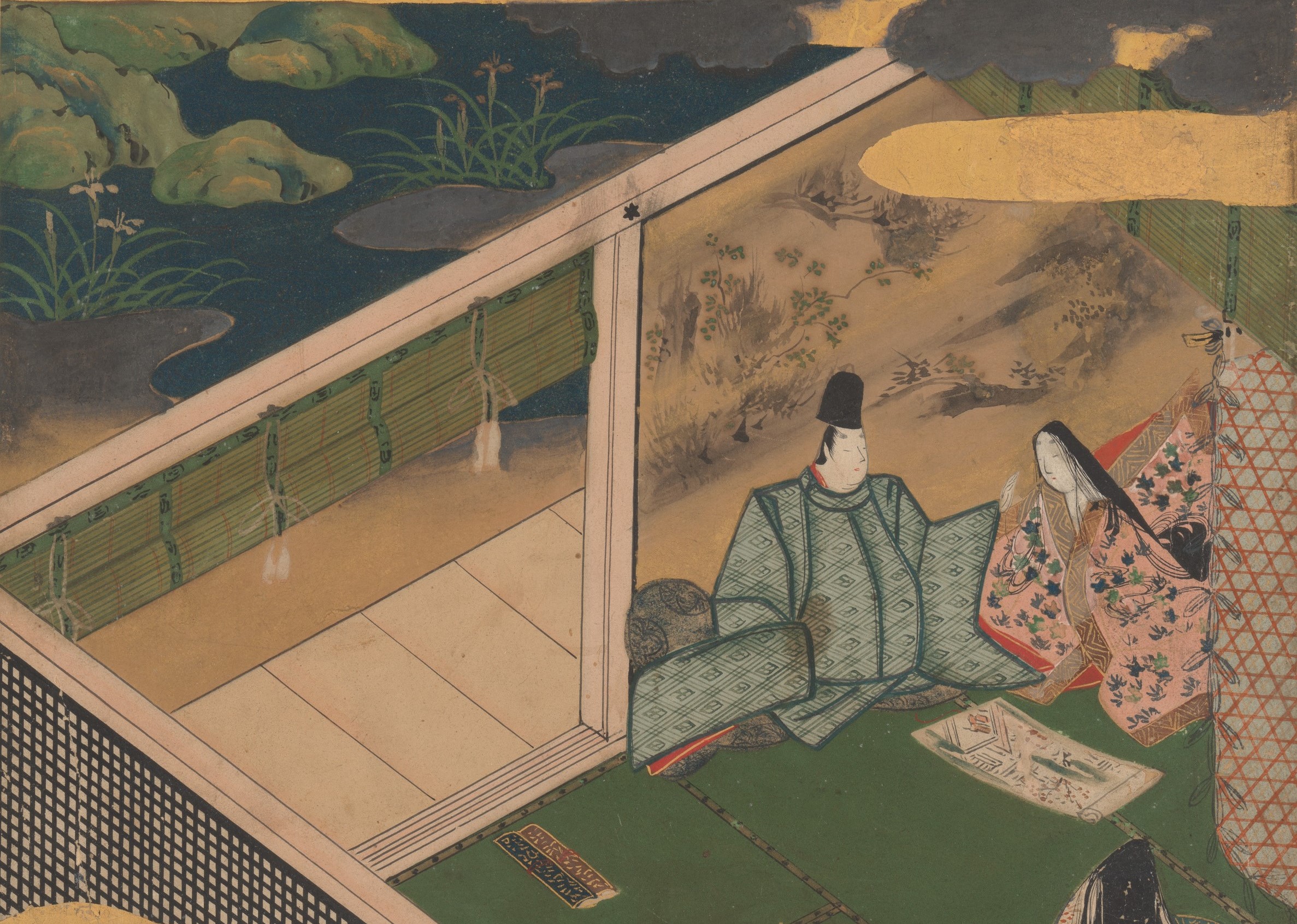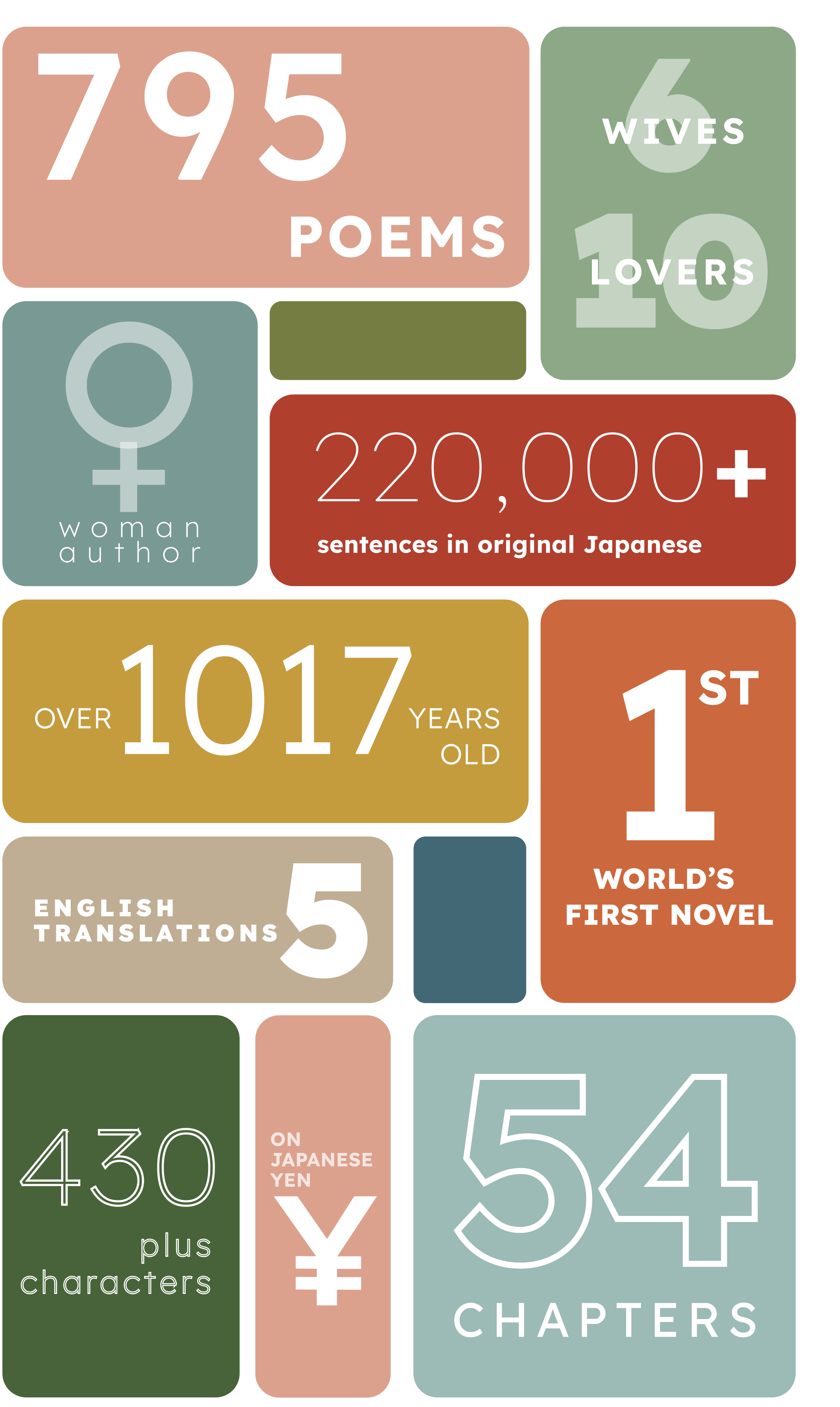
Discover
the 795 exquisite poems that
form the emotional heart of
the world's first novel, the
11th century masterpiece
The Tale of Genji.
The characters in the
The Tale of Genji, write poetry to communicate with each other and to
commune with themselves and the
non-human world. These poems
being poems, they also do much more
than relay unambiguous messages. If
the characters converse through
poems, the poems also speak to each
other beyond any given exchange.
They open out into an additional
dimension, a poetic universe shared by
readers that arches across and
through the narrative fabric of
the Tale. In this way, these 795 poems
constitute the emotional and symbolic
heart of the Genji, the jewels on the
thread out of which Murasaki Shikibu
wove her text.
